11.04.2022
As part of the course of lectures for students of the People's University of the Chelyabinsk Regional Public Organization Society "Knowledge", Dr. Irina Azernikova, Associate Professor of the Department of Public Relations, Tourism and Hospitality, read two lectured on the topic of art and culture of different eras.
As part of the course of lectures for students of the People's University of the Chelyabinsk Regional Public Organization Society "Knowledge", Dr. Irina Azernikova, Associate Professor of the Department of Public Relations, Tourism and Hospitality, read two lectured on the topic of art and culture of different eras.
Fine arts played a special role in the development of a new humanistic type of culture. Reviving the forgotten principles of the Classic art, such as the image of a beautiful, harmonious person, increased attention to the value of the individual and the importance of beauty not only of the soul, but also of the body.
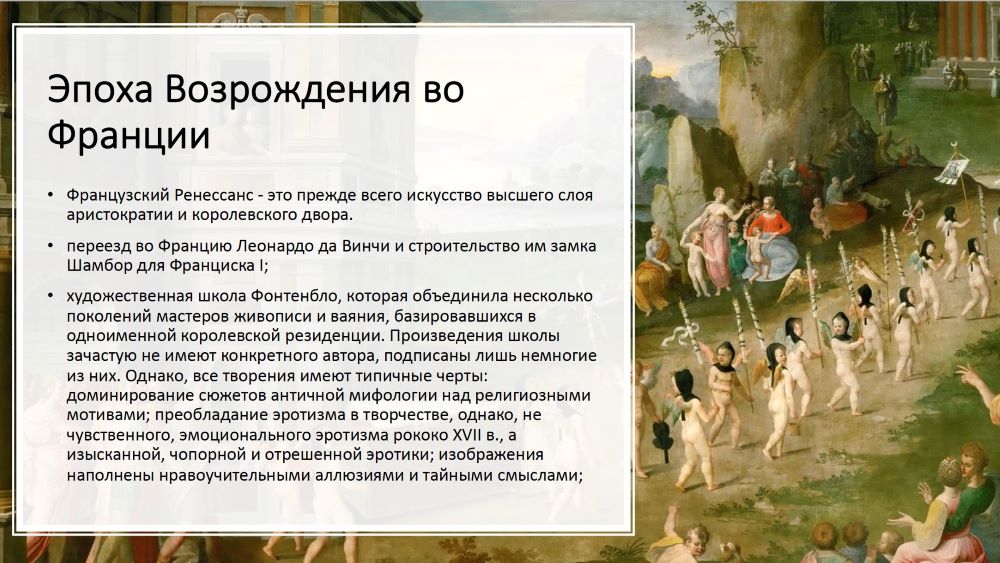
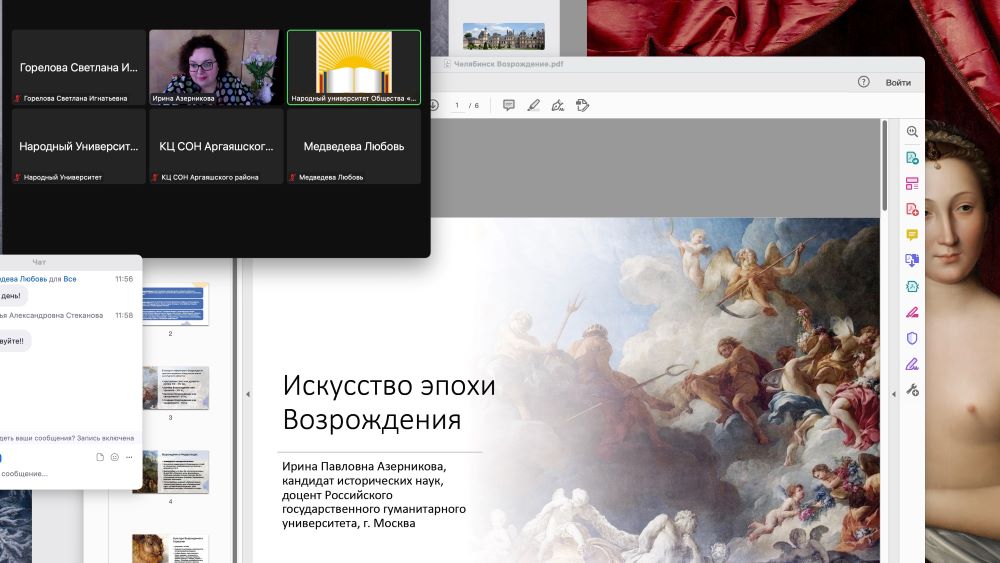
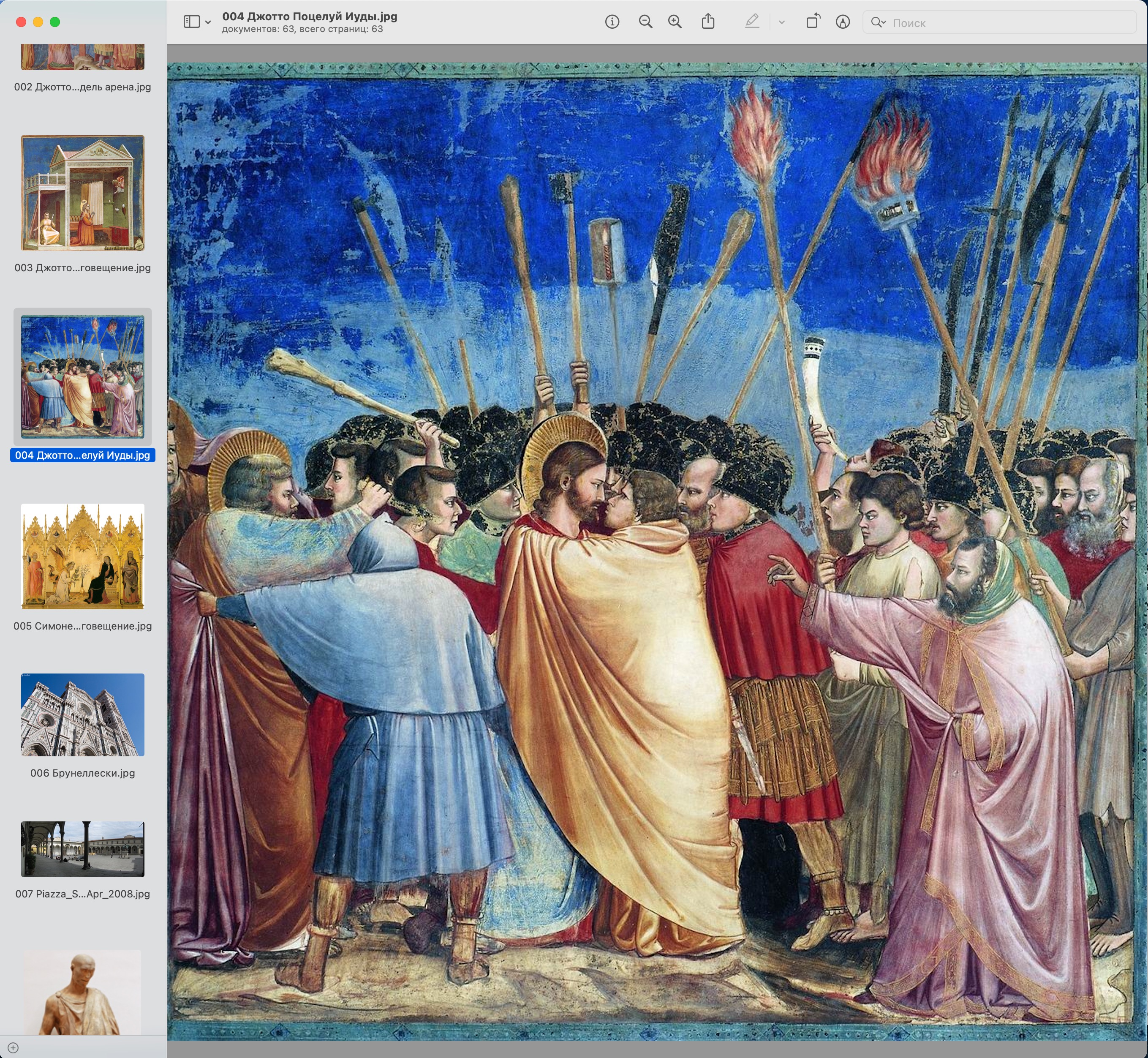
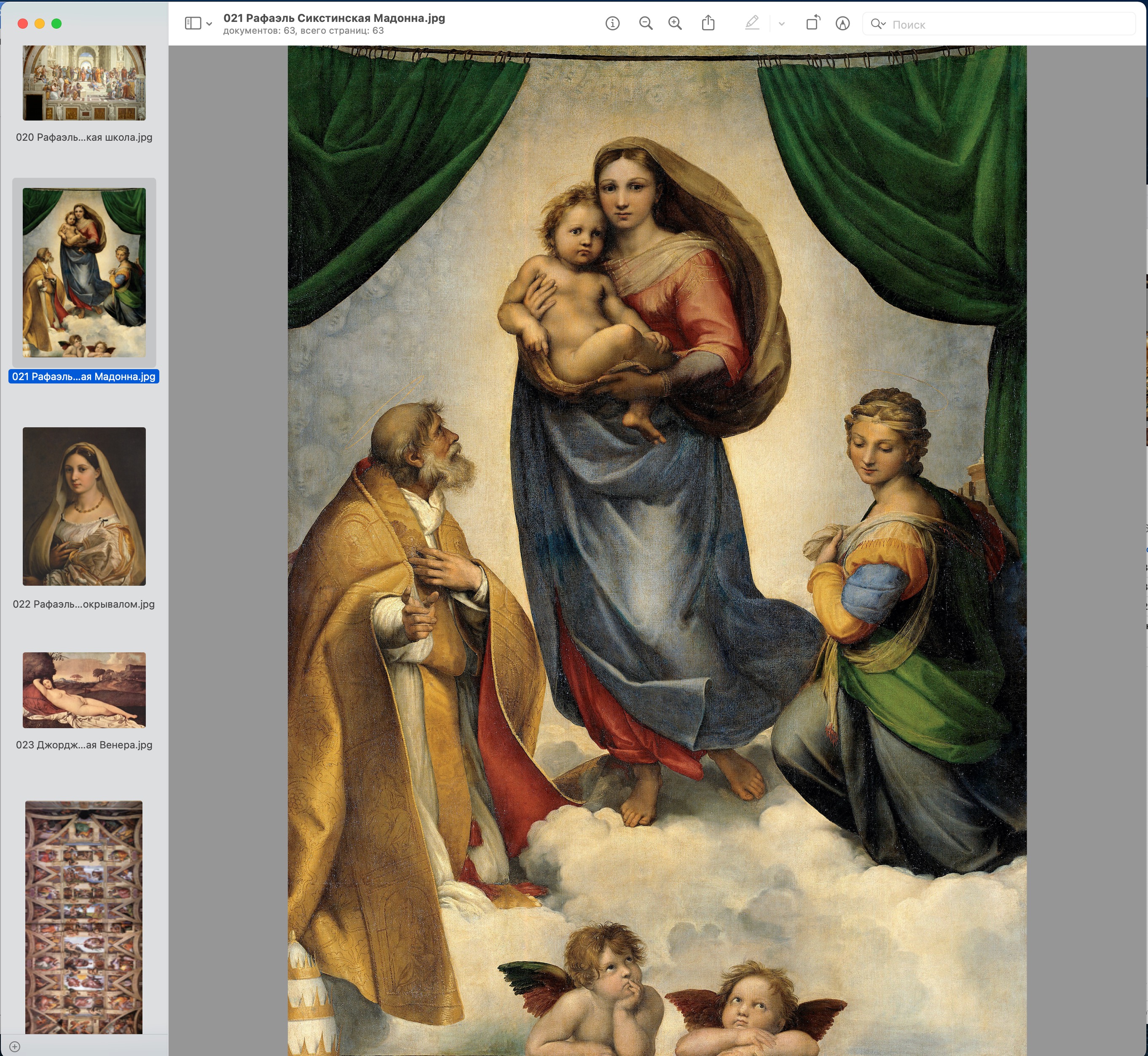
The lecture on March 18 was dedicated to the Soviet culture of the 1930s-1950s. Soviet neoclassicism or the Stalinist Empire in Moscow was developed at a time of colossal changes in the appearance of the city. For Moscow, this was the time when it became the city that we know and acquired most of the architectural features that make up its current image.
The rhetoric of the Stalinist empire was divided by the Great Patriotic War, with the victory radically changing the direction of the state ideology and, as a result, its architecture. The ideas of the communist International were replaced by the restoration of the Russian Empire with a pronounced Russian national character.
The era of the architecture of the winners came into existence, which was most clearly manifested in some of the VDNKh pavilions (for example, No. 1 "Central", No. 66 "Soviet Culture" and No. 58 "Agriculture",) and, of course, in the stations of the Moscow Metro Circle Line ("Komsomolskaya", "Kurskaya", "Oktyabrskaya" and "Taganskaya").
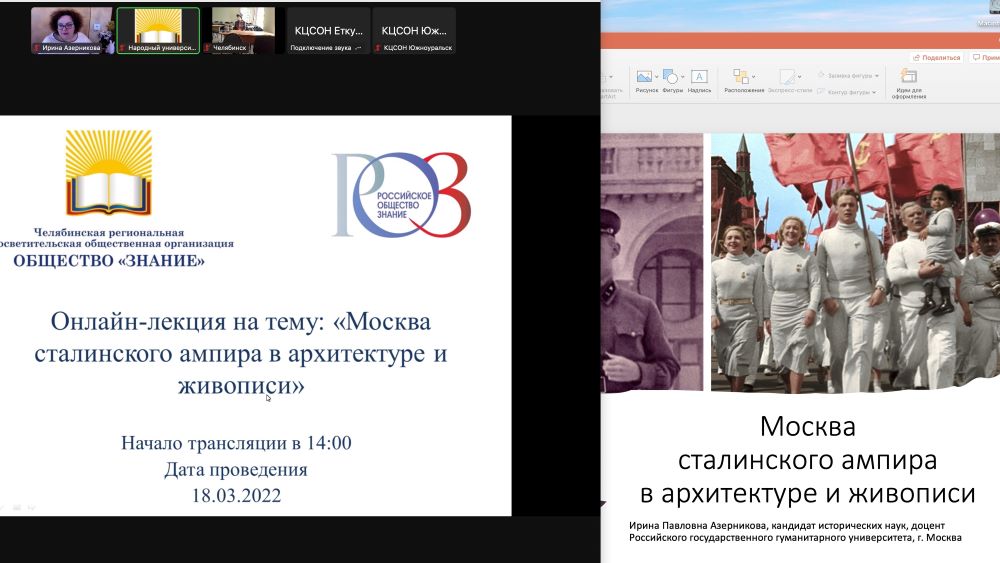
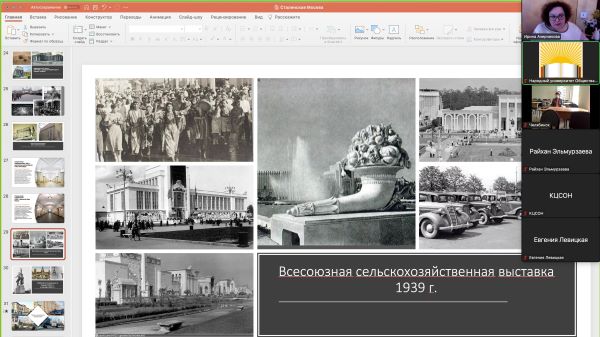
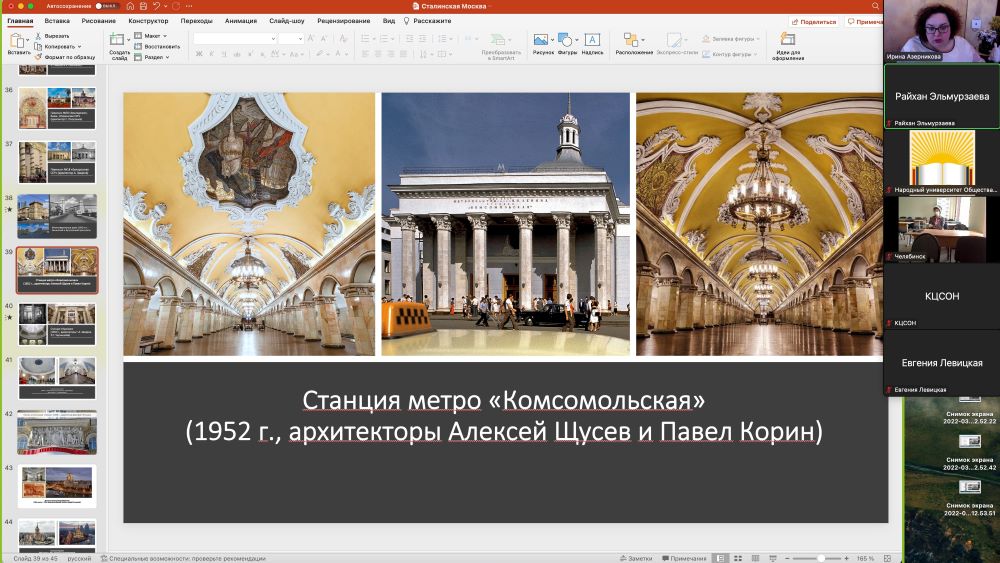
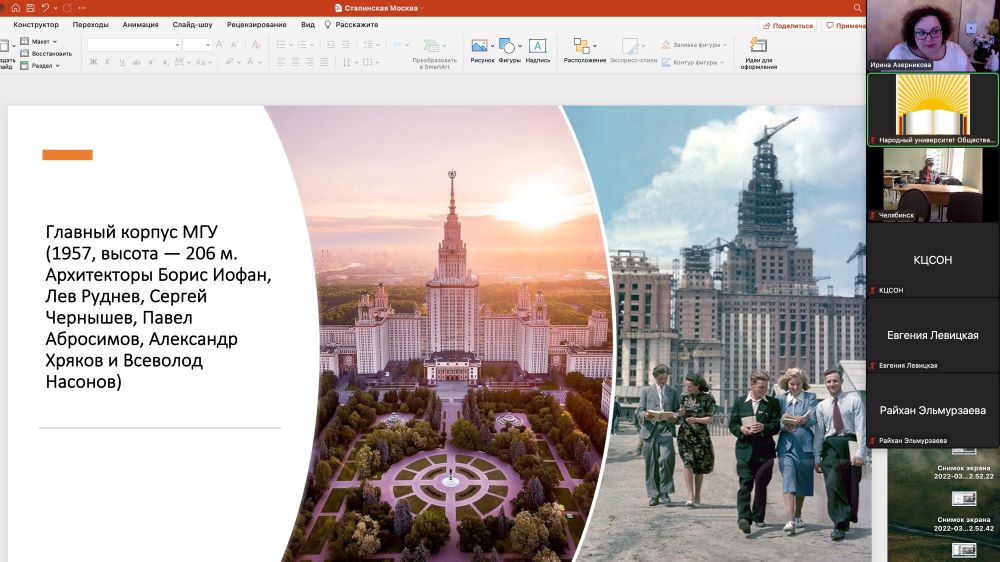
The steering committee and students of the People's University thanked Dr. Azernikova for the interesting and richly illustrated material. Both sides expressed their hope for future cooperation.